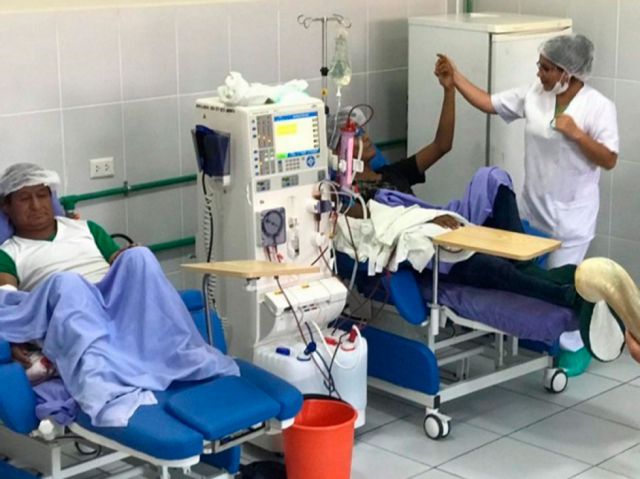In Tarija there are 280 people who depend on a hemodialysis machine. The most effective treatment is a kidney transplant, but currently only four have found a donor
There is still no determination from the Ministry of Health to resume kidney transplants in Bolivia. In Tarija there are four patients waiting for this surgical intervention, while there are other patients who need this organ, but cannot find donors. These interventions were paralyzed by the Covid-19 pandemic.
In total, Tarija has 280 people who depend on a hemodialysis machine. The most effective treatment, mainly for young people, is a kidney transplant, but at present, only four have found a donor and await the resumption of the transplant program of the Ministry of Health.
The departmental head of the Noncommunicable Diseases Unit, Elena Orihuela, was aware that in January 2021 the transplants would continue, but due to the increase in Covid-19 cases, there is nothing official.
The doctor pointed out that she has the files of four patients in process, who already have a donor relative, because that is one of the requirements to carry out the other studies and finally the surgical intervention.
“First there is an evaluation by the nephrologist, the doctor sees if the patient is fit to receive a kidney, a compatibility test is also done, then other types of evaluations with social work and psychological evaluation,” Orihuela said.
Deaths During the pandemic, 33 kidney patients with Covid-19 died, of which 11 belonged to the CNS
During the pandemic, 33 kidney patients with Covid-19 died, of which 11 belonged to the National Health Fund.
The head of the Hemodialysis Unit of the San Juan de Dios Regional Hospital (HRSJD), Jaime Arduz, explained that mainly young people have the option of having a kidney transplant, but it is a pending task because there are candidates, but there are no donors of that organ, the relatives are not sensitized for this altruistic act.
The nephrologist says that of the patients who come to the HRSJD to do their dialysis on the machines, at least 15 need a transplant, but the problem is that there are no donors.
“The law does not allow the unrelated living donor, because it can lead to the commercialization of organs. It is not very credible that a person goes and says that he is going to donate his kidney to his friend, in those cases it is seen that underneath there will be a commercial deal and that in Bolivia is prohibited – said the specialist -. This is one of the tasks of the authorities, who can implement a departmental policy to promote organ donation, with campaigns, education, because the opportunity for free transplants offered by the Ministry of Health is being wasted. ”
Arduz says that, although there is bureaucracy in the procedures, for a person to undergo a transplant, that does not mean that it is impossible, because in the space of three months the patient can know whether or not they are suitable to receive that organ. There are pre-transplant studies that are done in the HRSJD, others that must be done in the interior of the country.
The specialist estimates that to date in Tarija there are 20 people who live and have a better quality life thanks to kidney transplantation. The follow-up control is carried out at the Regional Hospital, in addition to the fact that the medication is free.
The Chaco has its limits machines hemodialysis
According to the departmental head of the Noncommunicable Diseases Unit, Elena Orihuela, the Chaco has its hemodialysis machines to the limit. In the case of Villa Montes, one more machine was enabled, with them the patients who were on the waiting list entered their treatment. In Yacuiba, cases are increasing and equipment is lacking, because the people who did this treatment in Argentina or Santa Cruz, due to the pandemic, cannot travel and demand the service in that town.
–

